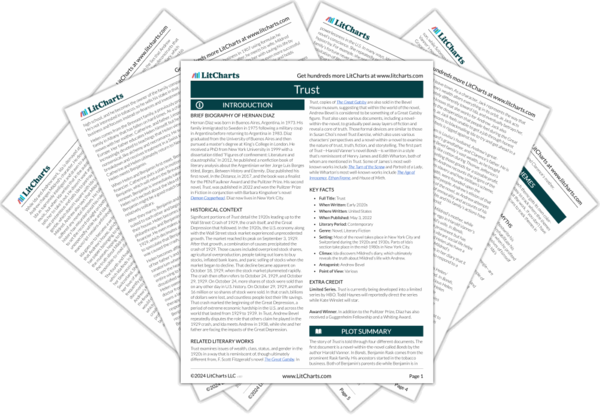Mildred’s description of her illness shares similarities with Harold’s description of that illness in
Bonds, but she has cancer, as Andrew says, not schizophrenia, as Harold intimated. That discrepancy between the story Harold told and reality calls to mind Ida’s comments, in which she believes Harold changed Mildred’s cancer diagnosis to mental illness to portray her using sexist and misogynist tropes of the damsel in distress who is beyond saving.
